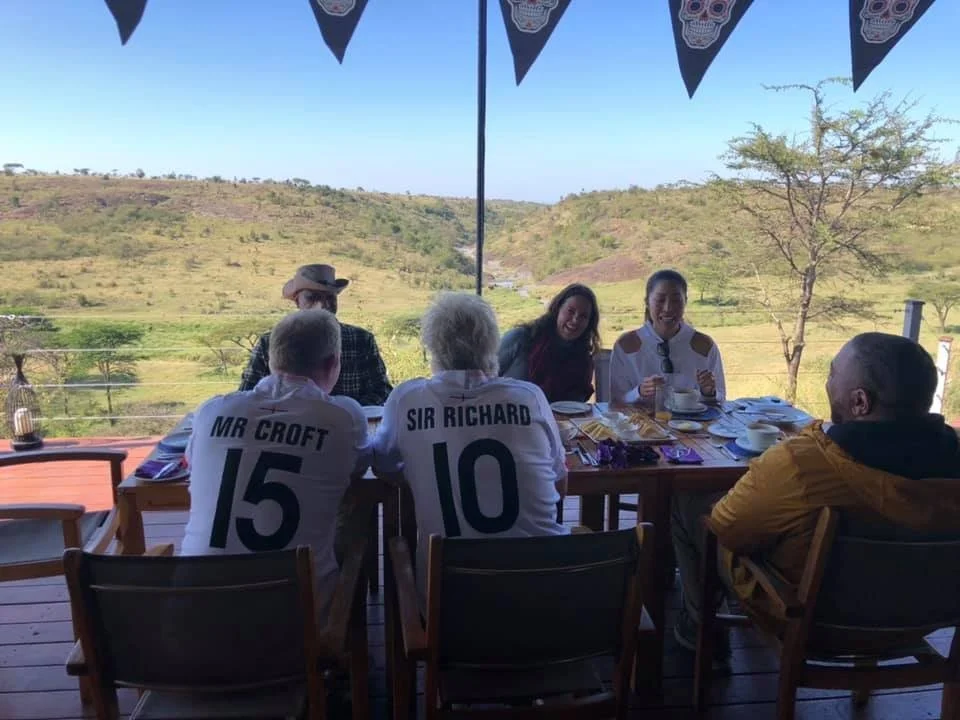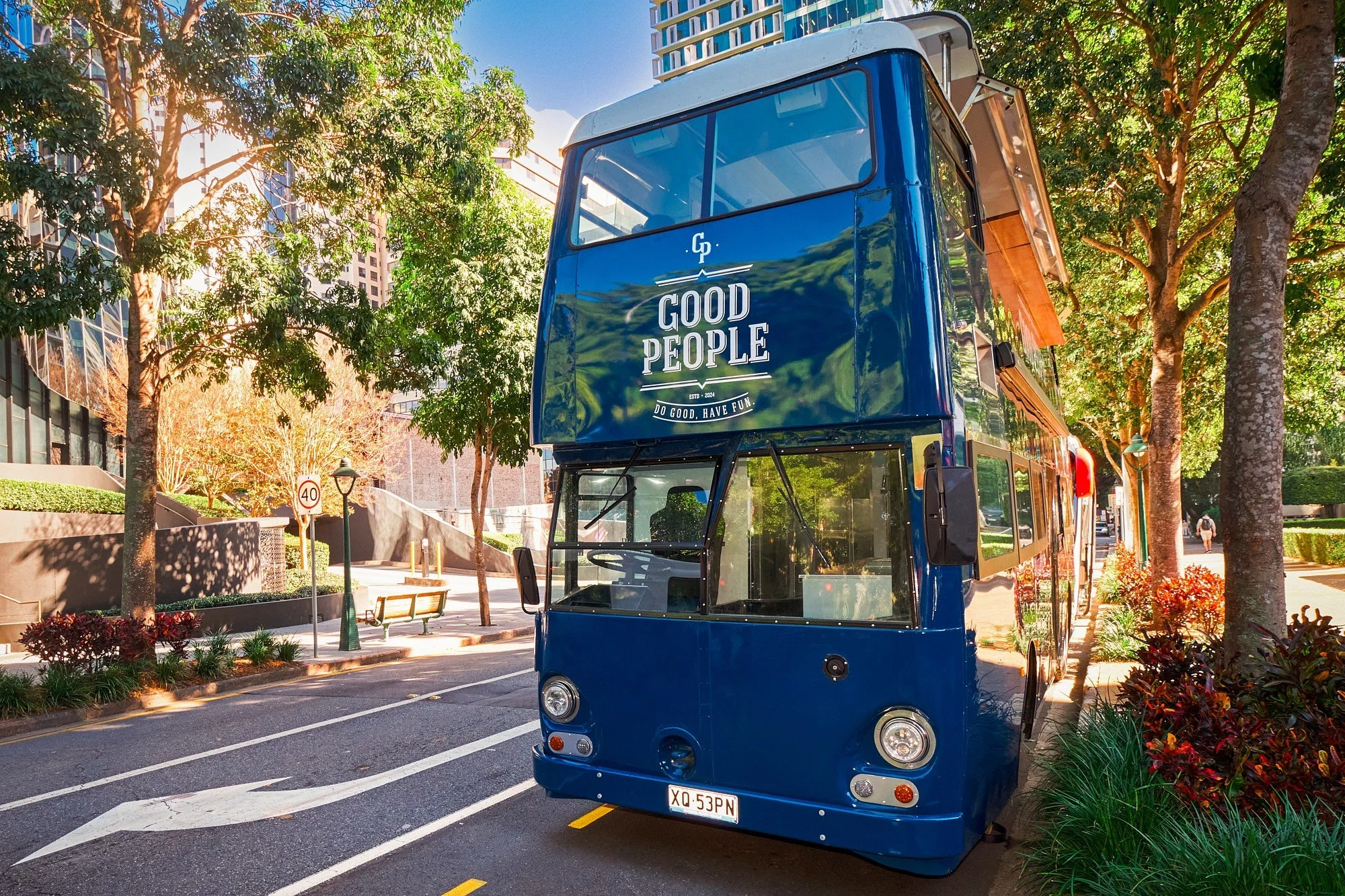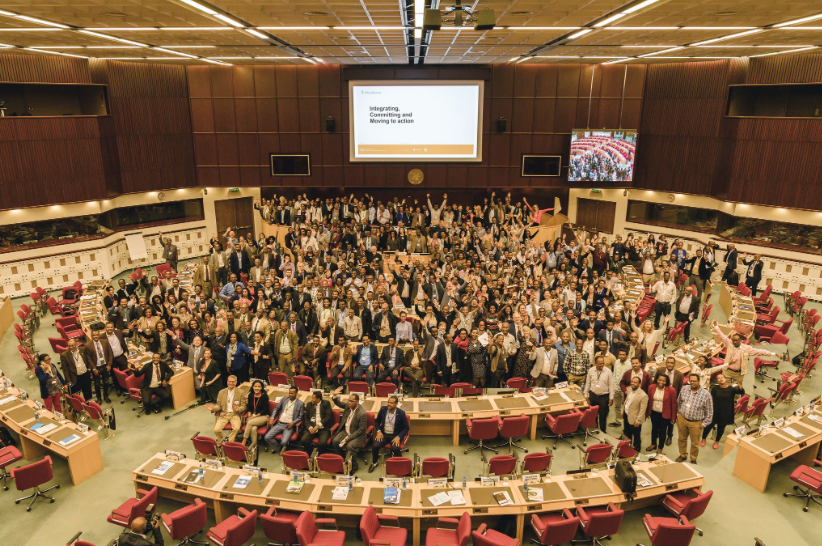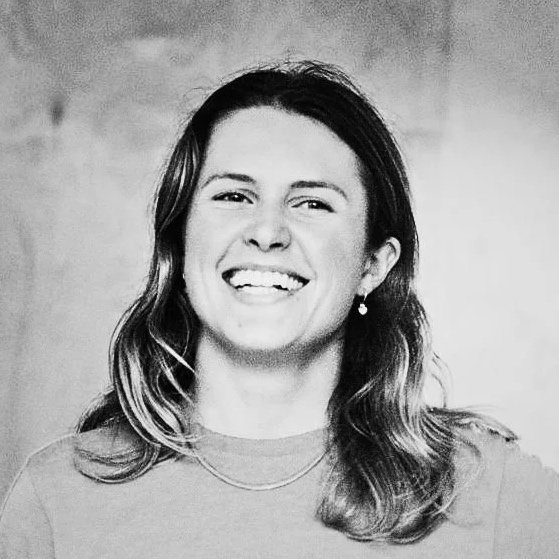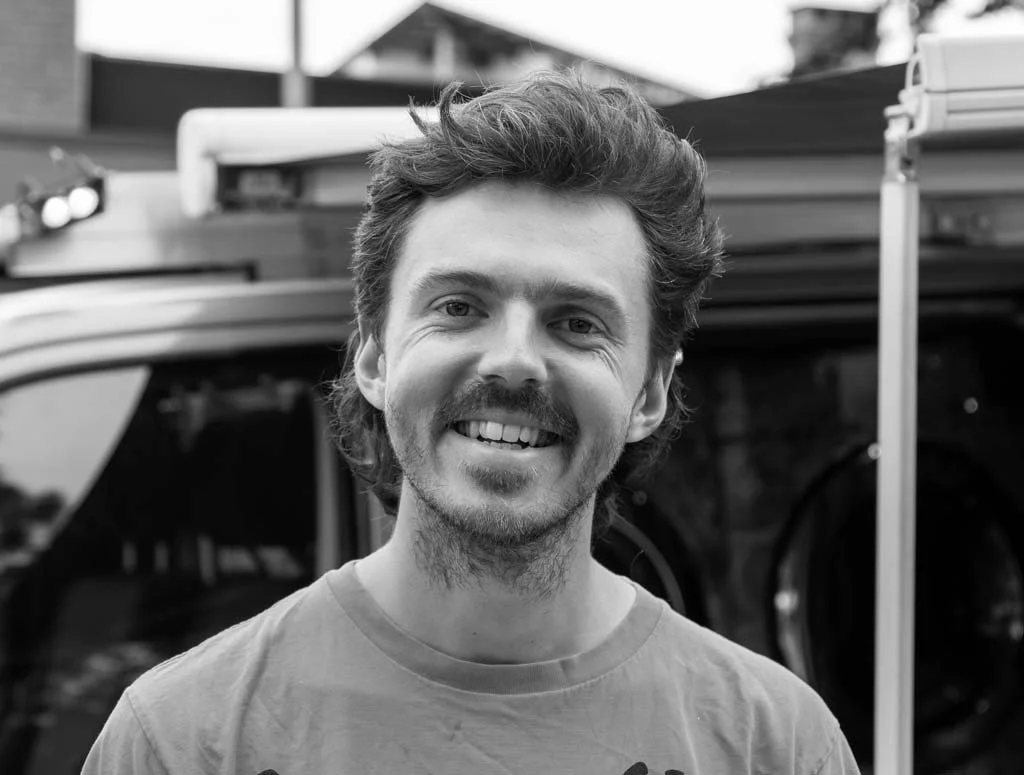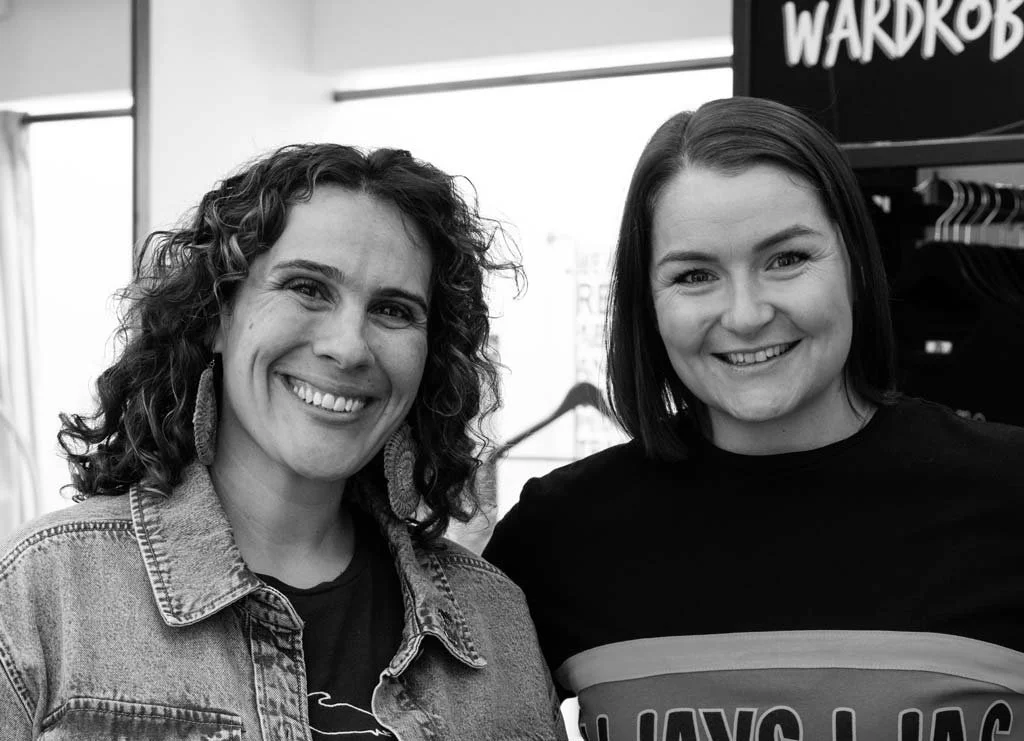Ben Croft On Fostering Community And Building Connection To Support Wellbeing
Ben Croft is a multi-award-winning entrepreneur, social impact innovator, and angel investor, best known for founding The World Business & Executive Coach Summit (WBECS)—a global platform that became the world’s leading event for the executive coaching industry, attracting over 49,000 attendees each year from 187 countries. Under his leadership, WBECS was named the fastest-growing education company in the UK (INC 5000) and was ultimately acquired by Coaching.com in 2022.
Throughout his career, Ben has co-founded or launched over ten ventures, including the Global Team Coaching Institute, Conversational Intelligence® for Coaches, Coaching With ROI, ACE, and EthicalCoach, a 501(c)(3) nonprofit he launched in partnership with global coaching leaders. EthicalCoach has delivered capacity-building programs to NGO leaders worldwide, with projects in collaboration with the United Nations, The Hunger Project, Women In Leadership Development, and many more.
Today, Ben is the CEO of GoodPeople.com.au, a Brisbane-based social enterprise focused on building stronger, more connected communities through innovative, inclusive, and sustainable events. From festivals to neighborhood workshops, GoodPeople’s mission is to reduce loneliness, foster connection, and create positive social impact across the city.
On Episode 572 of Impact Boom, Ben Croft of Good People discusses the power of community in creating and fostering social change, and integral lessons for coaching and leadership in the social impact sector.
Highlights from the interview (listen to the podcast for full details)
[Emma Dimech] - To start off, can you share a bit more about your background and what led to your work in social enterprise and community impact?
[Ben Croft] - In 2008, I launched my first business in the leadership development space, and what started out as a small venture eventually grew into a group of companies. Along the way, we launched a global event in 2010 that became the largest gathering of professional coaches worldwide each year.
We also created a publishing arm that featured some of the world's top thought leaders, people like Simon Sinek, Adam Grant, the founders of Pinterest, professors from Harvard, Stanford, Oxford, INSEAD, and even the President of the World Bank.
In 2015, I went on to found a 501(c)(3) charity, which was dedicated to providing high level leadership development at no cost to nonprofits and charities around the world. Our mission there was simple- we wanted to help them operate more effectively, improve governance, and even reduce corruption in some cases.
One of my proudest moments was in 2018, when we hosted a leadership summit at the United Nations for over 400 leaders from Ethiopian charities. Collectively, they supported more than nine million people in need, and we trained twenty local coaches in the six months prior to ensure we had long-term sustainability.
We then partnered with twenty charities over a two-year period to deliver coaching, improving their performance, increasing efficiency, and helping them serve people in need more effectively. It was an incredible experience and made possible by an exceptional team of coaches from around the world, alongside an awesome volunteer team who joined us in Addis Ababa.
After that, I stepped away from the commercial side of the business and focused on growing the charity. I moved from the position of CEO to the chairman of the company group, before focusing as the CEO of the charity. I continued that until 2022 when Coaching.com acquired the entire group of companies, including my non-profit.
Although it was a successful exit, honestly, I felt like I’d lost my baby. After taking a much needed sabbatical, I started Good People and our mission is simple, to do good and have fun doing it. We help nonprofits, charities, and social enterprises to run more successful fundraising events, by giving them access to affordable infrastructure.
We've collected a pretty unique set of assets so far. We’ve got a cocktail lounge set up in a double decker bus, seven event teepees with three giant ones that connect to form a 250 person venue, and a one thousand person silent disco, as well as so much more. We've got everything you need to run a mini festival.
While we are a nonprofit social enterprise, we also rent our assets out commercially to keep ourselves financially sustainable.
Would you be able to expand upon the values and the work that Good People is built upon and the impact that it has?
We believe in the strength of community and fostering connections that break down barriers and build lasting relationships. We also believe in the power of collaborations.
Since we started last year, we've partnered with local charities to support them in their fundraising. On average, we've raised about $10,000 per project, which has included initiatives like Youngcare, Precious Wings, and the Mental Health Awareness Foundation. We've also supported a number of amazing organisations like Orange Sky, where we helped host a team building event with our silent discos.
We've put on a community festival, with three thousand attendees in Fig Tree Pocket, where our goal was to bring a community together, reduce loneliness, and partner with local organisations. For that, we partnered with a local organisation and brought together a leadership team of twenty-seven high school students who I mentored throughout. They developed a plan using AI to run the festival, and it all went incredibly well, raising over $6,000 for the local school on the day, as well as $13,000 leading up to fund the festival itself and support local businesses.
Right now, we're working on a NAIDOC event, where we have an amazing leadership team from Murri Gummaz, a local Aboriginal and Torres Straits women's sports team, who are looking to attend an international tournament.
We're going to put together an event at Witton Barracks on the 5th of July, so get your ticket soon! All the money goes towards making the event happen and supporting Murri Gummaz. It'll be a night of cultural awesomeness with comedy, music, Indigenous food, and a tonne of fun. We’ll be providing the teepees, double decker bus, sound and lighting equipment, as well as team support for the event.
Why is it so important to foster stronger connections within communities and how does that relate to a wider social good?
I completely agree that connection really is an antidote to loneliness, which is becoming one of the biggest health issues we face today. I've seen it firsthand at one of our Good People events.
We had a festival where a woman of sixties came up to me and said, “I haven't danced in years! I didn't realise how much I needed this.” She wasn't talking about the music- she was talking about being seen, meeting friends, and being part of the community.
When communities are connected, they become a safety net. People check on each other and share resources. Suicide rates go down when you've got emotionally connected communities. Emotionally, practically, and even financially, this all really matters. That invisible infrastructure of care is what so many people are missing, especially since COVID.
Connection builds trust and that makes everything else possible: collaboration, civic engagement, and resilience. If we don't trust each other, we don't build together. From a wider perspective, connected people give more, volunteer more, create more, and they feel invested in where they live and who they live alongside. That's where real social change begins. It's not a top-down system, but one with neighbours who know each other's names and spend time with one another.
Disconnection on the other hand breeds extremism, apathy, and fear. When people feel like they belong, they act with empathy and shared responsibility, and they start seeing a shared problem instead of individuals.
In the end, it all comes down to fostering connection and building a more compassionate, peaceful, and equitable society, which starts with small moments and ripples outwards. That's what our community events are all about.
As a founder of multiple ventures, what have been some of the biggest challenges you've had to face in establishing and running businesses and how have you had to work around them?
One of the biggest challenges for me has always been balancing a big vision with the daily grind. I'm a visionary. Seeing things, putting them together, versus making them happen, it’s two different things and two different skill sets.
Starting off my own company, I was the first and only person, and I grew that to a hundred employees or so. Now I've gone back to being everything. Building that from the start is definitely a challenge. With WBECS, we had a hundred employees at our peak, and we were scaling fast, but I remember in the early days I was working out of a tiny room with a whiteboard, mapping out how we'd reach our global coaching audience. I didn't have a blueprint, just a belief and a vision that we could do things differently.
That's how I see Good People now. There are always the usual startup challenges, cash flow stresses, sleepless nights, constant pivots. The trick I've learned is to fall in love with the process.
Most people are focused on this outcome, thinking that once they hit the next milestone, everything will be all right. Once you get there, you realise now there's a new milestone and a whole new journey you have to go on, and again after that.
That's why our motto is ‘do good, have fun’, because while it can feel great to reach a goal and have a great outcome, the aftermath is that you’re all exhausted and unfulfilled from the actual journey, and you never want to do it again. Instead, if you love the journey, you have fun all the way through, and once you reach your current goal, you’re excited to embark on the next journey.
Falling in love with the process as opposed to the outcome is one of the best lessons that I've learned. I'm trying as much as possible to do that now at this stage in Good People, especially since I used to have a hundred employees which all had their separate specialisations that I could delegate out to.
A challenge I'm facing with Good People is that it’s a different model completely. It’s not about global tech, it’s about local trust and stepping into this community space, which takes time, especially in Brisbane. It's so cliquey here.
I used to be able to call anyone anytime from my industry. I could message the president of the World Bank and ask him to come volunteer and speak at my events. Now, I've got to earn my right again. Fortunately, some good people have put trust in me, and so far everything has gone really well.
There's been a few people that have placed trust in us and that's meant a win for both them and the community. One person I'll mention is councillor Penny Wolff. She's been a great advocate of ours. She has a background in leadership development and has been involved in executive coaching, so she knows what we do and what we're capable of. We've collaborated on a number of projects and she's really raised the bar of what's possible at a local level.
As you've done a lot of work in the coaching sector, what key advice would you give to aspiring changemakers looking to create social impact?
I've worked in the coaching profession my entire life. Not life coaching, but executive and leadership coaching, which is slightly different realm. It's more science-based, and most of our clients are organisational psychologists or psychiatrists, who worked at quite a high level. It’s funny because there was always this assumption that I was a coach, but I'm not.
However, having spent so much time in the industry with amazing people, I've had the privilege of working with some of the best coaches in the world. If you get the chance to get a coach, please do. A proper coach can really open your eyes. My business partner, Professor Clutterbuck, used to describe coaching as a listening conversation that helps you get what you most need.
One key thing is just starting where you are; don't wait to be an expert. People can learn, and learn, and learn, especially about running a social enterprise. Most of the impact begins with a simple problem that you're trying to solve. As long as you have a clearly defined problem, that’s enough to get going.
You really do need to be clear on your why. One of the guys that spoke at my events, Simon Sinek, his book Start With Why is about understanding why you’re doing something. If your ‘why’ isn't big enough, don't do it. Find something you have a big enough reason behind it, because having that purpose is what will get you through tough times.
Next is to surround yourself with people who challenge and support you. There are so many people I know that have fallen on hard times with family and friends. I'm personally going through a bit of a hard time with some family at the moment, unfortunately.
What I've done is created boundaries around that, and that's really helped me in avoiding distractions. Having a strong peer group will also get you through moments when belief waivers.
Staying humble is crucial, but moving boldly is just as much. Don't be afraid to be amazing.
There’s this idea of ‘tall poppy syndrome’ in Australia as a whole, where people are almost afraid to achieve in here, and if they do, they hide it. Actually, when you achieve, you can inspire others around you to do the same.
Another big one is protecting your energy. Burnout is real. I’ve burnt out a number of times because I was working ridiculous hours. What I wish I realised earlier is that often you get into diminishing returns, where taking time to rest is not taking you away from what you're doing, it's allowing you to get more done in the long run. You can be twice as effective the next day and work eight hours instead of 12 hours and get far more done.
Thinking long term is really important, especially with relationships. Be strategic and look after people. Real change takes time. Play the long game and celebrate the short wins along the way.
You also shouldn’t do it alone. Collaboration beats these solo heroic efforts easily. One thing I've noticed is that you could be working ridiculously hard on your own, only to have one person gives you some guidance, and that can double your growth.
Finally, don't be afraid to build something different. The best solutions often don't look like what came before, but also don't be afraid to build something that already exists.
There's some proven solutions out there, especially in other markets internationally, and getting inspiration from other people's ideas to better yours is always a good idea.
What inspiring projects or initiatives have you come across creating social change?
I have to give a shout out to all the amazing things done by Luke Terry and his team at White Box Enterprises. We are so lucky to be based at Witton Barracks. A lot of what we’re doing is based there and the work Luke and Gosia are doing is a constant inspiration, and I'm honoured to alongside them on some of their projects.
It’s really exciting just to follow the projects they're up to. I can guarantee, especially for our sector, it's game changing stuff. Being around them is very lucky and it’s been really inspiring for me
Another initiative, which I've recently decided to work with, is a project called Freddie Match. This was actually a referral from Luke, who introduced me to his colleague Roxane, who's doing some amazing work. They facilitate and optimise the process of volunteering.
The Freddie Bear Foundation was set up in loving memory of Roxane and Gary's son, Frederick. After he passed away very young, Roxane wanted to do some volunteering that utilised her skills but found that there wasn’t an easy way to find opportunities.
Freddie Match was created to solve that problem. I’m excited to invest in them, both financially and also in becoming an advisor there. It's something to watch and keep on track of. They're doing great work there.
To finish off, what books or resources would you recommend to our listeners?
Start With Why by Simon Sinek is a great read for everyone. It's really useful. My favourite book ever is the 4-Hour Work Week by Tim Ferriss. It changed my life and it's super relevant now especially, with the rise of AI.
For the social enterprise space, the Innovation Blind Spot by Ross Baird is a great take on why often the wrong ideas get backed and how social entrepreneurs can get backing. It's brilliant in the way it looks at things and talks about free pocket thinking.
I’d recommend also reading anything on AI. I think most of us have accepted that AI is going to be a big part of society, but I don't think many people realise quite how much it's going to take things to the next level.
The CEO of Fiverr came out recently saying that since his business is entirely dependent on the gig economy, most of his jobs are going to go to AI. It’s so out there for him to say that, but it’s true. There are going to be so many things that are replaced by AI, and it’ll be a massive opportunity. Focusing on that and learning about it is going to be really crucial.
If you spend a few months listening to podcasts and reading a few books in your spare time, you’ll be already ahead of ninety nine percent of the world on a subject that's going to affect a hundred percent of the world.
I highly recommend being right on top of that, especially for social entrepreneurs. You can cut so many costs, which means you can have so much more impact, by being in tune with and utilising these new AI tools.
Initiatives, Resources and people mentioned on the podcast
Recommended books
Start With Why by Simon Sinek
The 4-Hour Work Week by Tim Ferriss
The Innovation Blind Spot by Ross Baird





